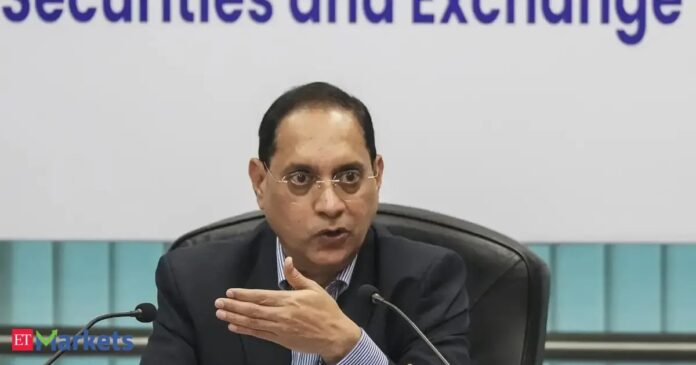SEBI’s Recent Proposals: A Game Changer for Indian Markets
On Wednesday, the Securities and Exchange Board of India (SEBI) convened its 210th board meeting, unveiling a series of transformative proposals aimed at enhancing the efficiency and transparency of the Indian capital markets. These reforms are particularly significant for Public Sector Undertakings (PSUs), Initial Public Offerings (IPOs), and foreign portfolio investors (FPIs), among others. Here’s a detailed look at the key takeaways from this pivotal meeting.
1) Special Delisting Route for PSUs
One of the most noteworthy proposals is the introduction of a fixed-price route for the voluntary delisting of eligible PSUs that have over 90% government or PSU holding. This move is designed to simplify the delisting process for these entities, which currently face regulatory hurdles. The exit price for such delistings must be at least 15% above the floor price, ensuring that residual shareholders are adequately protected. According to SEBI Chairman Tuhin Kanta Pandey, only five PSU companies currently meet this criterion, highlighting the targeted nature of this reform.
2) IPO Reforms to Aid Founders and Reverse-Flipping Companies
SEBI has made significant updates to its rules governing IPOs, particularly aimed at facilitating the process for founders and investors. Previously, investors who received shares through the conversion of compulsory convertible securities (CCS) were required to wait a year before selling them in a public issue. This waiting period has now been eliminated, allowing for greater liquidity. Additionally, relevant institutions such as Alternative Investment Funds (AIFs) and banks can now contribute to the minimum promoter contribution using CCS, further easing the path to public offerings.
3) Push for Full Dematerialization Before IPO
In a bid to enhance transparency and reduce fraudulent activities, SEBI has mandated the dematerialization of existing securities for select shareholders prior to filing a Draft Red Herring Prospectus (DRHP). This requirement will apply to promoters, key managerial personnel, directors, employees, and Qualified Institutional Buyers (QIBs). By promoting dematerialization, SEBI aims to streamline the IPO process and bolster investor confidence.
4) Simplified Disclosures for Institutional Placements
SEBI has streamlined the documentation required for Qualified Institutional Placements (QIPs), eliminating redundant disclosures. This simplification allows for concise summaries of risk factors, financials, and business overviews, making it easier for institutional investors to assess opportunities and make informed decisions.
5) Relaxed FPI Rules for G-Sec-Only Investors
To facilitate easier participation in the Indian market, SEBI has relaxed regulatory compliances for Foreign Portfolio Investors (FPIs) investing solely in Government Securities (G-Secs). The new norms will reduce the frequency of Know Your Customer (KYC) checks and eliminate the requirement for investor group details, making it simpler for foreign investors to engage with Indian markets.
6) Co-Investment Opportunities for Category I & II AIFs
The board has approved a proposal allowing Category I and II AIFs to offer co-investment opportunities within their structures. This initiative aims to enhance the ease of doing business for AIFs, enabling them to invest alongside their managers or sponsors in unlisted companies, thereby fostering greater collaboration and investment.
7) Settlement Window for Brokers in NSEL Case
In response to the ongoing issues surrounding the National Spot Exchange Limited (NSEL) case, SEBI has introduced a one-time settlement scheme for stock brokers involved. This scheme outlines both monetary and non-monetary terms, providing a pathway for resolution while excluding brokers named in criminal charge sheets.
8) Eased Norms for REITs and InvITs
To enhance the operational efficiency of Real Estate Investment Trusts (REITs) and Infrastructure Investment Trusts (InvITs), SEBI has approved measures that classify only Qualified Institutional Buyers (QIBs) as “public” related parties. This change aims to simplify compliance and encourage investment in these sectors.
9) Merchant Bankers Allowed More Flexibility
SEBI has revised its rules to grant merchant bankers greater flexibility in performing non-SEBI regulated, fee-based financial services without the need to establish separate entities. This change is subject to compliance and conflict-of-interest safeguards, allowing for a more integrated approach to financial services.
10) Reforms for Social Stock Exchange
In a significant move to support social enterprises, SEBI has amended the regulatory framework for the Social Stock Exchange. The new norms will allow for-profit organizations and various legal structures, such as trusts and charitable societies, to be included within the definition of Not-for-Profit Organizations (NPOs). This expansion aims to facilitate broader access to capital for social initiatives.
Conclusion
SEBI’s recent proposals represent a substantial step forward in modernizing India’s capital markets. By simplifying processes, enhancing transparency, and promoting investor participation, these reforms are poised to foster a more robust and dynamic financial ecosystem. As the Indian economy continues to evolve, these changes will likely play a crucial role in attracting both domestic and international investments, ultimately benefiting all stakeholders involved.

